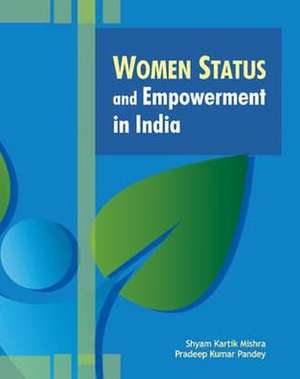Women, Status & Empowerment in India
Autor Shyam Kartik Mishraen Limba Engleză Hardback – 4 noi 2012
Preț: 490.17 lei
Preț vechi: 550.26 lei
-11% Nou
Puncte Express: 735
Preț estimativ în valută:
93.80€ • 101.86$ • 78.80£
93.80€ • 101.86$ • 78.80£
Carte indisponibilă temporar
Doresc să fiu notificat când acest titlu va fi disponibil:
Se trimite...
Preluare comenzi: 021 569.72.76
Specificații
ISBN-13: 9788177083132
ISBN-10: 8177083139
Pagini: 304
Dimensiuni: 190 x 245 x 31 mm
Greutate: 0.91 kg
Editura: Gazelle Book Services Ltd
ISBN-10: 8177083139
Pagini: 304
Dimensiuni: 190 x 245 x 31 mm
Greutate: 0.91 kg
Editura: Gazelle Book Services Ltd
